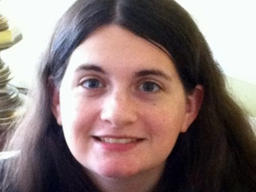Doctoral Dissertation Defense: Teresa Lebair
Advisor: Dr. Jinglai Shen
Location
Sondheim Hall : 409
Date & Time
June 28, 2016, 1:30 pm – 3:30 pm
Description
Title: Constrained Estimation and Approximation Using Control, Optimization, and Spline Theory
Abstract
There has been an escalating interest in shape constrained estimation and approximation in the fields of applied mathematics and statistics. Applications from various areas of research such as biology, engineering, and economics have fueled this soaring attention. Due to the natural constrained optimization and optimal control formulations achieved by inequality constrained estimation problems, optimization and optimal control play an invaluable part in resolving computational and statistical performance matters in shape constrained estimation. Additionally, the favorable statistical, numerical, and analytical properties of spline functions grant splines an influential place in resolving these issues. Hence, the purpose of this research is to develop numerical and analytical techniques for general shape constrained estimation problems using optimization, optimal control, spline theory, and statistical tools.
A number of topics in shape constrained estimation are examined. We first consider the computation and numerical analysis of smoothing splines subject to general dynamics and control constraints. Optimal control formulations and nonsmooth algorithms for computing such splines are established; we then verify the convergence of these algorithms. Second, we consider the asymptotic analysis of the nonparametric estimation of functions subject to general nonnegative derivative constraints in the supremum norm. A nonnegative derivative constrained B-spline estimator is proposed, and we demonstrate that this estimator achieves a critical uniform Lipschitz property. This property is then exploited to establish asymptotic bounds on the B-spline estimator bias, stochastic error, and risk in the supremum norm. Minimax lower bounds are then established for a variety of nonnegative derivative constrained function classes, using the same norm. For the first, second, and third order derivative constraints, these asymptotic lower bounds match the upper bounds on the constrained B-spline estimator risk, demonstrating that the nonnegative derivative constrained B-spline estimator performs optimally over suitable constrained Holder classes, with respect to the supremum norm.
Abstract
There has been an escalating interest in shape constrained estimation and approximation in the fields of applied mathematics and statistics. Applications from various areas of research such as biology, engineering, and economics have fueled this soaring attention. Due to the natural constrained optimization and optimal control formulations achieved by inequality constrained estimation problems, optimization and optimal control play an invaluable part in resolving computational and statistical performance matters in shape constrained estimation. Additionally, the favorable statistical, numerical, and analytical properties of spline functions grant splines an influential place in resolving these issues. Hence, the purpose of this research is to develop numerical and analytical techniques for general shape constrained estimation problems using optimization, optimal control, spline theory, and statistical tools.
A number of topics in shape constrained estimation are examined. We first consider the computation and numerical analysis of smoothing splines subject to general dynamics and control constraints. Optimal control formulations and nonsmooth algorithms for computing such splines are established; we then verify the convergence of these algorithms. Second, we consider the asymptotic analysis of the nonparametric estimation of functions subject to general nonnegative derivative constraints in the supremum norm. A nonnegative derivative constrained B-spline estimator is proposed, and we demonstrate that this estimator achieves a critical uniform Lipschitz property. This property is then exploited to establish asymptotic bounds on the B-spline estimator bias, stochastic error, and risk in the supremum norm. Minimax lower bounds are then established for a variety of nonnegative derivative constrained function classes, using the same norm. For the first, second, and third order derivative constraints, these asymptotic lower bounds match the upper bounds on the constrained B-spline estimator risk, demonstrating that the nonnegative derivative constrained B-spline estimator performs optimally over suitable constrained Holder classes, with respect to the supremum norm.
Tags:
